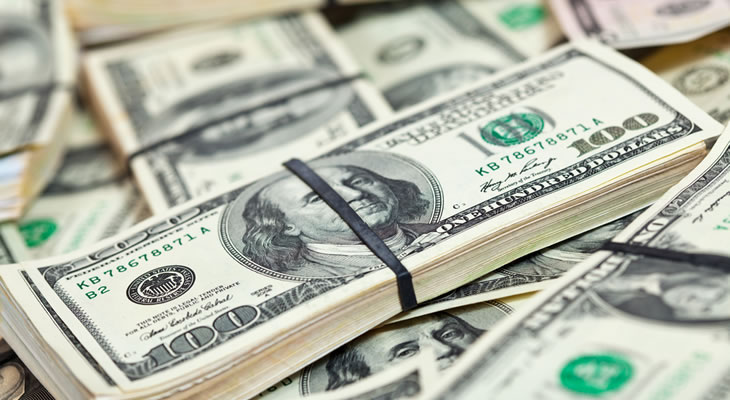The Central Bank of Nigeria’s (CBN) data for last month shows that Nigeria’s foreign reserves plunged to $38.54 billion as of May 27, 2022, the lowest in over seven months.
The foreign reserves was strong in January 2022, exceeding the international criterion of 3.0 months of import cover, according to the CBN’s economic report for the month of January 2022.
As of January 31, 2022, the external reserves were $39.38 billion, enough to cover 8.3 months of goods and services imports or 10.9 months of goods alone imports.
About three months ago, Investors King reported that despite the surge in oil prices Foreign reserves dipped by $129.210 million in seven days. The foreign reserves stood at $39.871 billion on March 4, 2022, before dropping to $39.768 billion on March 9, 2022. This decline continues even with Brent crude oil, the international benchmark for Nigeria’s type of crude oil, trading at a 14-year high of $130.68 a barrel.
Investors King suggested the reasons were the massive amount of forex spent on subsidies that made it impossible to adequately service industries that rely on imported raw materials. These companies have no choice but to use the black market for their currency needs, and they continue to support the unregulated forex market.
Also. the fact that Nigerians spend an estimated N499.200 billion ($1.2 billion) per year on medical tourism is also a major concern. This does not include money spent on abroad education or other expenses. All of these payments are made with money earned from the sale of crude oil.
Muda Yusuf, chief executive officer of Centre for the Promotion of Private Enterprise, in like manner, affirmed this earlier stating, “the external reserves have been impacted by a lot of factors, which include pressure on importation of goods services, particularly petroleum, rigid foreign exchange fixed policy of the CBN, among others,”
The difficulty of crude oil theft, he claimed, had impacted the economy’s FX supply.
“Ideally, our reserves should have improved by now because of the increase in oil prices. We are one of the countries that have the paradox of increasing oil prices and yet our reserves are not increasing. So crude oil theft is a factor,” he said.
Brent crude, the international benchmark, increased by $1.61 to $123.3 per barrel as of 6:40 p.m. Nigerian time on Tuesday. At the end of last year, it was trading at $77.24 per barrel.
“The current oil production is significantly low due to maintenance, pipeline vandalism, divestment by foreign investors and insecurity. As at December 2021, Nigeria’s crude oil production was at 1.2mbpd compared to the OPEC plus quota of 1.6mbpd, hence we are not benefiting from the upside in price,” Ayodeji Ebo, chief business officer, Optimus by Afrinvest, said in February this year.
According to the CBN, the economy had a smaller net foreign exchange inflow in January, owing primarily to net flows from the CBN and autonomous sources.
The economy’s total foreign exchange inflow fell by 36.7 percent to $4.36 billion in January 2022, down from $6.89 billion in December 2021.
The total foreign exchange outflow fell by 5.1% to $3.41 billion from $3.59 billion the previous quarter. In the month under review, a net inflow of $0.95 billion was recorded, compared to a net inflow of $3.29 billion the month before.
Foreign exchange reserves are assets held in foreign currencies by a monetary authority. Reserves are used to back obligations and have an impact on monetary policy.



 Forex3 weeks ago
Forex3 weeks ago










 Naira2 weeks ago
Naira2 weeks ago
 Billionaire Watch2 weeks ago
Billionaire Watch2 weeks ago




 Naira2 weeks ago
Naira2 weeks ago




 Naira2 weeks ago
Naira2 weeks ago










 Naira4 weeks ago
Naira4 weeks ago


 Naira1 week ago
Naira1 week ago










 Naira4 weeks ago
Naira4 weeks ago
















